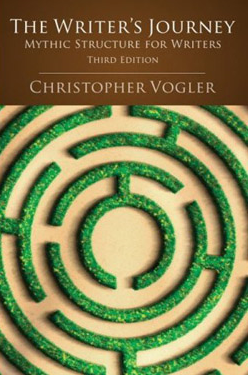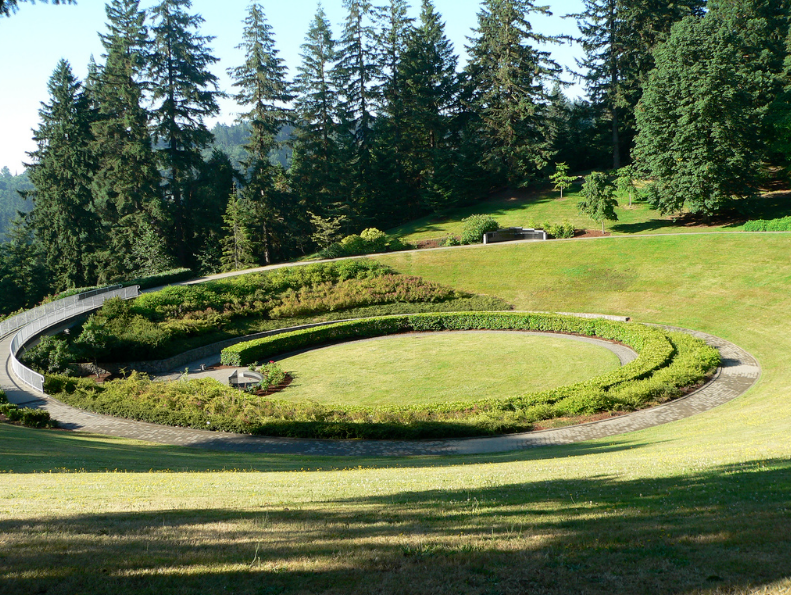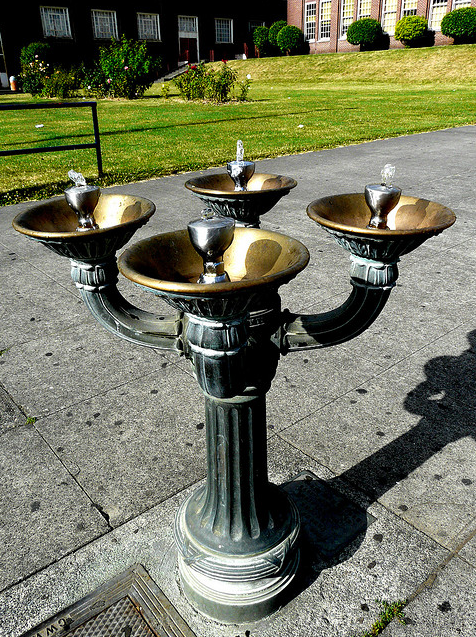Many cultures believe that each of us is the incarnation of a unique and beautiful dream. Our life task is to live that dream to the fullest possible extent. When we do this, our lives are filled love, joy, and creativity. These same cultures also believe that those who are not able to find their dream or for some reason choose not to live it suffer a fate worse than death. In fact, we all suffer when someone’s dream is not lived and brought into fulfillment.
 And so each of us is the star of our own hero’s journey, which is about finding and living our dream. In his book, The Writer’s Journey, Mythic Structure for Writers, Christopher Vogler divides the hero’s journey into twelve steps. Finding and living a dream demands that we we go through these steps in our own lives.
And so each of us is the star of our own hero’s journey, which is about finding and living our dream. In his book, The Writer’s Journey, Mythic Structure for Writers, Christopher Vogler divides the hero’s journey into twelve steps. Finding and living a dream demands that we we go through these steps in our own lives.
1. THE ORDINARY WORLD: If we are incarnations of a dream, then we come from the mind of the dreamer. Our ordinary world is the world of the dreamer.
2. THE CALL TO ADVENTURE: The dreamer, which could be interpreted as our soul, dreams a dream of fulfillment for itself. Unfortunately we, the dream, don’t remember the dreamer, and we haven’t a clue about what our dream actually is.
3. REFUSAL OF THE CALL: We are brutally squeezed through our mother’s birth canal and are born into a cold, bright world. With our first breath we scream in anger and grief for the paradise we have lost.
4. MEETING WITH THE MENTOR: We meet and bond first with our parents, but we will find others who have things to teach us about our dream.
5. CROSSING THE FIRST THRESHOLD: Just when we’ve gotten our balance, we learn the ugly truth that it’s really not all about us. We need to learn how to love and work with others.
6. TESTS, ALLIES, AND ENEMIES: As we grow up we face challenges and either succeed or fail. We meet people who will help us find our dream and those who will keep us from it. Sometimes we get them confused. We discover our strengths and weaknesses and learn to work with them.
7. APPROACH TO THE INNERMOST CAVE: By now we’ve figured out what our dream is and we’ve learned all the skills we need to achieve it. At this point, we begin moving through the territory of our dream toward the final goal. If we were mountaineers, we would be at base camp, ready to begin the final assault on the summit.
8. THE ORDEAL: Dreams are not easily achieved. We all must battle both outward, physical obstacles and our own fears and feelings of inadequacy and unworthiness.
9. REWARD: Yay, we made it!
10. THE ROAD BACK: After achieving our dream, we must live it so that we can truly understand its scope and strength. Also, in most stories the hero has a choice of whether or not to return to the ordinary world. We don’t. We must prepare to die.
11. RESURECTION: We die, so that we can be reborn back into the ordinary world.
12. RETURN WITH THE ELIXER: The dreamer has fulfilled its dream and is richer, wiser, and one step ahead in its own hero’s journey.
We also work through all twelve steps at pivotal points in our life. Cycles within cycles. Some of these points are birth, the change from child to young adult, getting a driver’s license, graduating from high school, training for a career, marriage, home ownership, children’s births, grandchildren’s births, death. If one of these points is not part of our dream, we skip it. But if we haven’t found our dream how do we know which ones to skip and which ones we really need?
How do we find our dream?
Everyone does this in their own way and at their own pace, but it helps if, at these important times, our friends and relations
Kick us out of our ordinary world and send us on a hero’s journey.
Acknowledge our skill and accomplishment when we return with the elixir.
Tell us the story of where we’ve been and who we are.
Remind us that we are now a different person.
It’s like hitting a reset button on our life. It allows us to
Re-evaluate our hopes, fears, strong points, and weak points
Affirm our new standing in the community that supports us
Start out on the next stage of our journey full of confidence and valuable insights.

This process is called a Rite of Passage.
Last weekend I had the honor and privilege to help plan and to attend a child-to-young-adult Rite of Passage for Miles. His grandmother and parents are good friends of ours.
In the morning Miles’ parents drove him to a friend’s house. Miles had never been there before. They told him to go inside, and drove away. The friend gave him a mass transit map of Portland marked with places he had to get to and a list of things he had to bring back.
On his way to the bus, an elder in the community stopped him and gave him a Tri-Met day pass.

At the Vietnam War Memorial he was met by a Vietnam War vet, who told him what it means to be a hero and gave Miles bay laurel leaves.
At the Park Blocks Market another elder met him and they bought a candle and salt.

At the US Bank Building, my husband took him up to the 13th floor and showed him the lay of the land around the city and the major geologic formations. Since Portland is mostly defined and formed by water, Miles filled a jar with water from a Benson Bubbler.
When he returned, we greeted him as a hero returning with gifts. The bay leaves, salt, and water went into the soup and the candle was for his parents. His parents gave him gifts that they’d been saving for him till he got older and we all told Miles stories and reminded him that he wasn’t a child anymore. We also reminded ourselves of this and reformed our expectations of him. Then we had dinner together.
Hopefully this ritual will help Miles discover some of the confidence, focus, and self-knowledge he will need to find his dream and live it.


6 thoughts on “Mythology’s 12 Step Program”
Fabulous. What joy to be part of a ritual like that, I grew up thinking rituals were the Church’s controling influence over our lives. I trained as a Celebrant and Ritual Maker a few years back and it’s been a joy to be able support a person into a new space developing in their lives which gives them permission to decide what to take into their future and what to leave behind
That is important work.
Weddings and funerals are about the only rites of passage our society really makes a big thing about. But the passage from child to young adult is also crucial to a person’s development, and generally goes unrecognized except for moans and groans on the parent’s part. This is one of a host of reasons why many of our teens are failing and rebellious.
All much better explained at http://www.clickok.co.uk/index4.html
Kal Bashir’s web site is fascinating and a must for anyone interested in understanding the hero’s journey. However, for my purposes, 12 steps are much easier to deal with than 2000.
I’ve watched Miles his whole life and I’m so glad he has so many well ballanced friends and family to guide him through life. Thank you for your part and for sharing with us who wern’t aware of this program.
Love to all,
Auntie Annette
It was our pleasure!